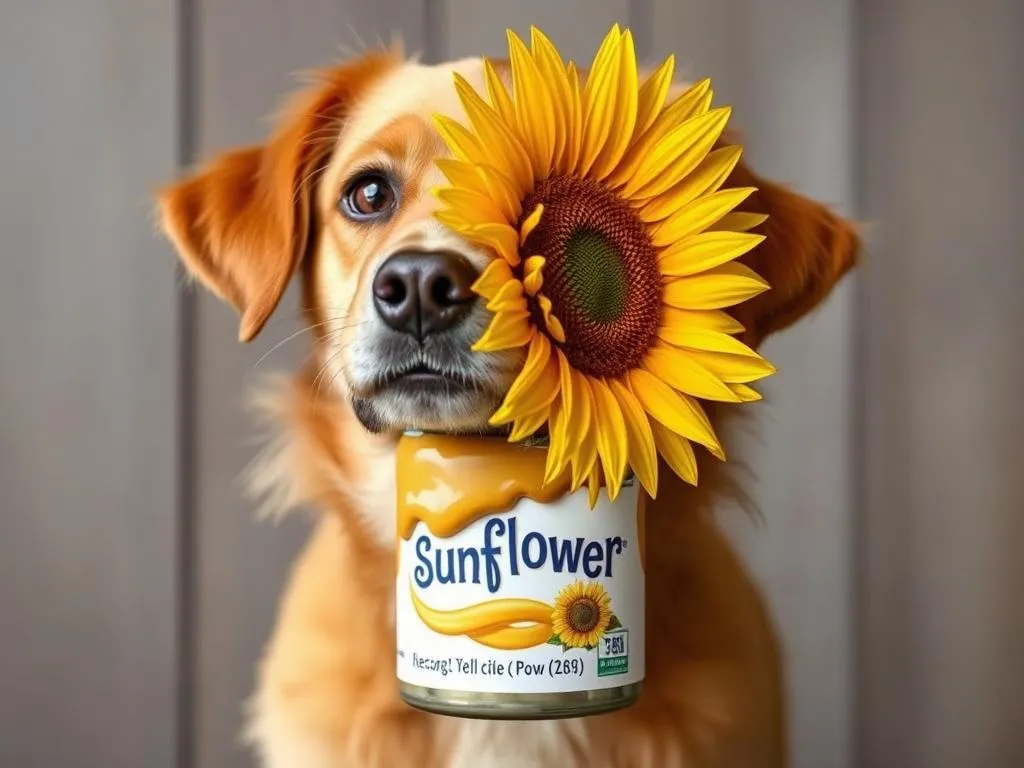
Introduction
Understanding dog nutrition is crucial for maintaining the health and well-being of your furry friend. Just like humans, dogs require a balanced diet to thrive. With the myriad of food options available, pet owners often find themselves asking, can dogs eat sunflower butter? This is a valid concern; knowing which foods are safe for dogs is essential to prevent health issues and allergies.
In this article, we will explore the nutritional needs of dogs, delve into sunflower butter’s composition, assess its benefits and risks for canine consumption, and provide guidance on incorporating it into your dog’s diet. By the end, you will have a comprehensive understanding of how sunflower butter fits into your dog’s nutritional landscape.
Understanding Dog Nutrition
Basic Nutritional Needs of Dogs
Dogs, much like humans, require a balanced intake of macronutrients: proteins, fats, and carbohydrates. Each of these components plays a vital role in your dog’s overall health:
- Proteins: Essential for growth, repair, and overall bodily function. They are made up of amino acids, which are crucial for muscle development and immune function.
- Fats: These provide energy and support cell structure. Healthy fats, particularly those rich in omega-3 and omega-6 fatty acids, are important for skin and coat health.
- Carbohydrates: While not strictly necessary, carbs can be a good source of energy and aid in digestion when sourced from whole foods.
In addition to these macronutrients, vitamins and minerals are vital for a dog’s diet. They support various bodily functions, from bone health to immune response, ensuring your dog remains healthy and active.
Common Dietary Restrictions
While many foods are safe for dogs, some can be toxic. Common foods to avoid include:
- Chocolate: Contains theobromine, which is toxic to dogs.
- Grapes and raisins: Can lead to kidney failure.
- Onions and garlic: Can damage red blood cells and lead to anemia.
Moreover, some dogs may have allergies or intolerances, such as gluten sensitivity or reactions to certain proteins. It’s crucial to monitor your dog’s reaction to new foods to ensure their safety.
Sunflower Butter: An Overview
What is Sunflower Butter?
Sunflower butter is a spread made from ground sunflower seeds. It is often used as an alternative to nut butters like peanut or almond butter, particularly for those with nut allergies. The primary ingredients in sunflower butter typically include:
- Roasted sunflower seeds
- A small amount of oil (often sunflower oil)
- Salt (though unsalted varieties are available)
Nutritional Profile of Sunflower Butter
Sunflower butter is rich in nutrients. Here’s a breakdown of its typical nutritional profile per tablespoon:
- Calories: Approximately 100
- Protein: 3.5 grams
- Fats: 8.5 grams (includes healthy unsaturated fats)
- Carbohydrates: 3 grams
- Vitamins and Minerals: Contains vitamin E, magnesium, phosphorus, and B vitamins.
This nutritional density makes sunflower butter a potentially beneficial addition to your dog’s diet, but it should be introduced cautiously.
Can Dogs Safely Consume Sunflower Butter?
Potential Benefits of Sunflower Butter for Dogs
There are several benefits to consider when evaluating whether dogs can eat sunflower butter:
- Healthy Fats: Sunflower butter is high in unsaturated fats, which can help promote heart health and provide energy.
- Omega-6 Fatty Acids: These fatty acids are essential for maintaining healthy skin and a shiny coat. They can also help reduce inflammation in dogs.
- Nutrient-Rich: The presence of vitamins and minerals supports overall health and can contribute to a well-rounded diet.
Risks and Considerations
While sunflower butter can be beneficial, there are also risks involved:
- Allergic Reactions: Some dogs may be allergic to sunflower seeds or other components in sunflower butter. Symptoms can include itching, swelling, or digestive upset.
- Caloric Density: Sunflower butter is calorie-dense, and excessive consumption can lead to weight gain. It’s essential to monitor your dog’s overall caloric intake, especially if they are less active.
- Moderation is Key: As with any treat, moderation is crucial. Sunflower butter should not replace a balanced dog food diet but can be used as an occasional treat.
How to Incorporate Sunflower Butter into Your Dog’s Diet
Recommended Serving Sizes
When introducing sunflower butter to your dog’s diet, start with small amounts. A general guideline is:
- Small dogs: ½ teaspoon
- Medium dogs: 1 teaspoon
- Large dogs: 1 tablespoon
Always observe how your dog reacts to the new treat before increasing the serving size.
Creative Ways to Serve Sunflower Butter
There are several fun and engaging ways to incorporate sunflower butter into your dog’s diet:
- Mix with Dog Food: Stir a small amount into your dog’s regular food to enhance flavor and nutrition.
- Training Tool: Use sunflower butter as a reward during training sessions. The flavorful spread can motivate your dog to learn new commands.
- Homemade Treats: Add sunflower butter to homemade dog treats for an extra nutritional boost.
Homemade Sunflower Butter Recipes for Dogs
If you’re interested in making your own sunflower butter, here’s a simple recipe to try:
Ingredients:
– 1 cup of unsalted roasted sunflower seeds
– 1-2 tablespoons of sunflower oil (optional, for creaminess)
Instructions:
1. Place the sunflower seeds in a food processor.
2. Blend on high speed for 5-10 minutes, scraping down the sides as needed, until the mixture becomes smooth.
3. If desired, add sunflower oil for a creamier texture and blend again.
4. Store in an airtight container in the refrigerator for up to two weeks.
This homemade version ensures your dog gets a treat without any unnecessary additives.
Alternatives to Sunflower Butter
Other Nut Butters Safe for Dogs
If you’re exploring options beyond sunflower butter, consider these alternatives, keeping in mind that moderation is key:
- Peanut Butter: A popular choice, but ensure it’s xylitol-free, as this sweetener is toxic to dogs.
- Almond Butter: Generally safe but should be given in moderation due to its higher fat content.
Dog-Safe Treats and Spreads
There are many dog-friendly treats that can provide similar benefits without the risks associated with nut butters. Here are a few suggestions:
- Pumpkin Puree: Great for digestion and a good source of vitamins.
- Greek Yogurt: High in protein and beneficial for gut health (ensure it’s plain and unsweetened).
Conclusion
In summary, can dogs eat sunflower butter? Yes, dogs can safely consume sunflower butter in moderation, and it may offer several health benefits, including healthy fats and essential nutrients. However, it’s essential to consult your veterinarian before introducing any new foods to your dog’s diet.
Always prioritize moderation and responsible feeding practices to ensure your dog’s health and happiness. By being informed about what your dog eats, you can contribute to their overall well-being and longevity.
Frequently Asked Questions (FAQs)
Can all dogs eat sunflower butter?
Not all dogs can tolerate sunflower butter. Individual allergies and sensitivities can vary, so it’s important to introduce it slowly and monitor your dog’s reaction.
What should I do if my dog has an allergic reaction?
If you suspect your dog is having an allergic reaction, stop feeding them sunflower butter immediately and consult your veterinarian. Symptoms may include swelling, itching, or gastrointestinal upset.
Can sunflower butter replace my dog’s regular food?
Sunflower butter should not replace your dog’s regular food. It can be a nutritious supplement or treat but does not provide a complete diet on its own. Always prioritize a balanced dog food that meets your pet’s nutritional needs.
By understanding the benefits and risks associated with sunflower butter, you can make informed decisions that enhance your dog’s diet and overall health.









